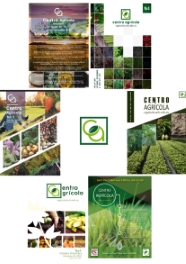CF: cag022212318
RESEARCH ARTICLE
Effect of saline stress on the growth of "Tayuyo" maize seedlings under in vitro conditions
Efecto del estrés salino sobre el crecimiento de plántulas de maíz variedad “Tayuyo” en condiciones in vitro
Carlos Alberto Sangoquiza Caiza1,2* 
Yosvel Viera Tamayo2 
Carlos Fernando Yánez Guzmán3 
José Luis Zambrano Mendoza3 
1 Especialidad Ingeniería Agronómica, Unidad Académica de Ciencias Agropecuarias y Recursos Naturales, Universidad Técnica de Cotopaxi, Cotopaxi, Latacunga, Ecuador, CP 050101
2 Centro de Estudios de Biotecnología Vegetal, Facultad de Ciencias Agrícolas, Universidad de Granma, Carretera a Manzanillo, km 17 ½, Bayamo, Granma, Cuba, CP 85100
3 Instituto Nacional de Investigaciones Agropecuarias INIAP- Programa de Maíz, Sector Cutuglagua, km 1 ½, Mejía, Pichincha, Ecuador, CP 17053
*E-mail: This email address is being protected from spambots. You need JavaScript enabled to view it.
ABSTRACT
Corn is one of the most economically important cereals in the world, ranking second after wheat. Among the great diversity of varieties of Zea mays L. that are cultivated in Cuba, is the "Tayuyo" variety. Currently, there are no studies that evaluate the effect of the salinity of this variety. Therefore, the objective of the present work was to evaluate the effect of saline stress on the growth of seedlings of maize variety "Tayuyo" under in vitro conditions. It was carried out at the Plant Tissue Cultivation Laboratory belonging to the Center for Plant Biotechnology Studies (CEBVEG) of the Faculty of Agricultural Sciences (FCA) of the University of Granma (UDG), Cuba. In which the range of tolerance to salinity of corn plants was evaluated in vitro using a basal culture medium (6 % agar and distilled water) with different levels of electrical conductivity (0, 2, 4, 6 and 8 dS m-1) adjusted with the NaCl reagent. For this research, an experimental design of random blocks was used with three replications where they evaluated; germination percentage, number of roots, length of the primary root, plant height, number of leaves per plant, weight of fresh matter and the index of tolerance to salinity was calculated. The results revealed that the evaluated plants are tolerant to salinity up to 2 dS m-1. In general, the increase in salinity levels caused a delay in germination but not in the germination percentage at eight days after sowing. On the other hand, the rest of the variables showed a downward trend with increasing salinity levels.






